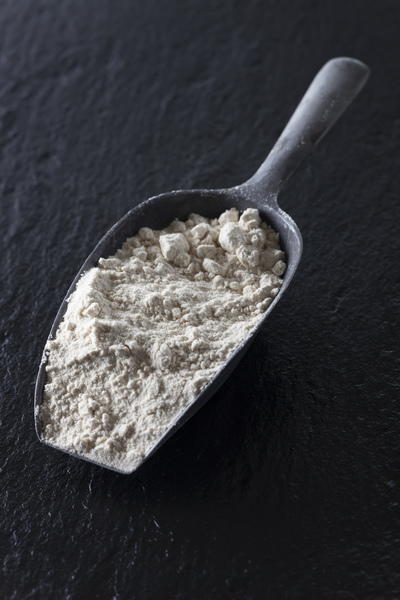Jerusalem artichoke flour

What is Jerusalem artichoke flour?
Jerusalem artichoke flour is made from dried and ground Jerusalem artichoke tubers. The tubers originally come from North America and were used as food by the indigenous people. Today they are mainly grown and consumed in Europe.
Jerusalem artichoke tubers contain a lot of inulin, a polysaccharide that is not digested and therefore acts as a dietary fiber. They are also rich in minerals such as iron and potassium as well as vitamins such as vitamin C and B vitamins.
What are the benefits of Jerusalem artichoke flour for dogs?
Jerusalem artichoke meal can offer your dog various health benefits:
- It keeps blood sugar levels stable as inulin is not broken down into glucose. This can be particularly important for dogs with diabetes or obesity.
- It supports digestion by strengthening the intestinal flora and promoting intestinal motility. This can help with constipation or diarrhea.
- It regulates the metabolism by improving liver function and stimulating fat burning. It can strengthen the immune system and reduce inflammation.
- It provides easily digestible fiber that increases satiety and regulates appetite. This can help with weight control.
What are the disadvantages of Jerusalem artichoke meal for dogs?
While Jerusalem artichoke meal is healthy for dogs, there are some disadvantages or risks to be aware of:
- It can cause bloating as inulin is fermented by bacteria in the large intestine. This can be uncomfortable for your dog or indicate an intolerance.
- It can trigger allergic reactions if your dog is sensitive to certain ingredients. This can manifest itself as a skin rash, itching or breathing difficulties.
- It may interact with medication if your dog is taking other medicines. This can strengthen or weaken the effect of the medication.
How can you give your dog Jerusalem artichoke meal?
If you want to give your dog Jerusalem artichoke meal, you should follow a few tips:
- Start with a small amount (e.g. one teaspoon per day) and increase it slowly (e.g. up to one tablespoon per day).
- Mix the flour into your dog's food or use it as an ingredient for homemade treats (e.g. Jerusalem artichoke potato chips).
- Observe your dog's reaction to the flour and adjust the dosage accordingly (e.g. reduce it in case of flatulence or allergies).
If you notice any signs of hypersensitivity or poisoning in your dog, you should see your vet immediately. We are not a substitute for a vet, but we try to be as accurate as possible. Every dog reacts differently and we recommend you get a second opinion or consult your vet if in doubt.
Stay healthy and take good care of your four-legged friend!😊